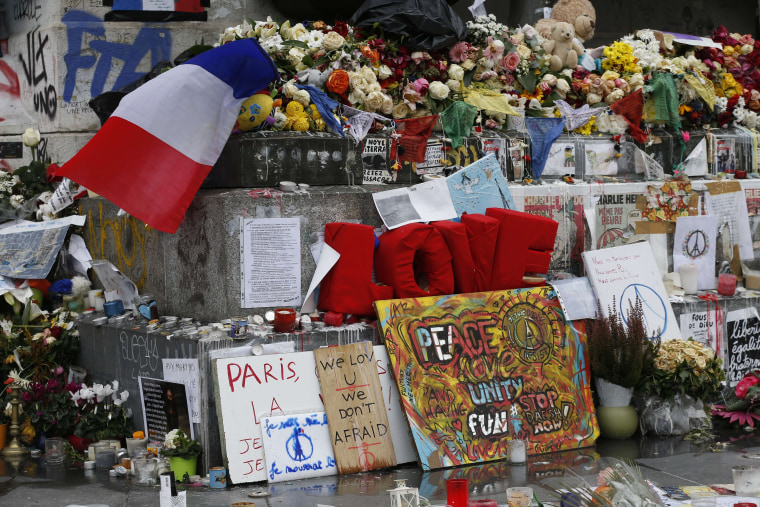MAINZ, Germany — Two suspected ISIS members arrived in Europe aboard a migrant boat alongside two of the Paris attackers and investigators are examining potential links to the killing spree, officials said Friday.
Austrian authorities said a 28-year-old Algerian and a 34-year-old Pakistani reached Greece on Oct. 3 along with dozens of other people following a sea journey undertaken by tens of thousands of refugees and migrants trying to cross into the European Union.
“One of the suspects confessed that he had arrived in Greece with two men, who are believed to be among the Paris attackers,” Salzburg prosecutors office spokesman Robert Holzleitner told NBC News.
Prosecutors called the investigation "highly complex."
However, Holzleitner denied recent media reports suggesting the pair had admitted planning terrorist attacks in Europe.
Greek officials have previously said that one of the suicide bombers who targeted a packed stadium during an international soccer game landed on the island of Leros on Oct. 3. French police have referred to him as the "dead mastermind" of the Stade de France attack, one in a series of massacres that left 130 dead on Nov. 13.
While the Paris attackers were able to leave Greece, the Algerian and the Pakistani were stopped by authorities because of their forged Syrian passports and were held up for about 25 days.

They later traveled to Salzburg where they stayed at a refugee shelter and were arrested on Dec. 10 by Austrian state police. Germany’s Bild newspaper reported on Sunday that they were taken into custody following a tip-off by German intelligence.
A 25-year-old Moroccan and a 40-year old-Algerian were arrested eight days later in Salzburg. “These suspects were in close contact, at least during their time in Salzburg, with the other two men,” Holzleitner added.
Those arrests followed the detention of two Syrians in Salzburg in early December who were registered as refugees in Austria amid claims they had previously fought for ISIS.
Related: Why Europe Can't Pull Up Its Drawbridge
Those men were reported to authorities by other migrants who were concerned by both their behavior and background stories. Authorities say they reportedly had discussed their involvement in ISIS combat.
While they remain in custody, officials don't believe that duo has direct links to the other four people arrested in the city.
ISIS claimed responsibility for the Paris attacks and suspected ringleader Abdelhamid Abaaoud spent time fighting with the terrorist group in Syria. He even boasted about evading Western intelligence agencies.
Under the Schengen Agreement of 1995, travel without passport checks is permitted within 26 countries on the European mainland. That means once migrants arrive in a country like Greece, they are free to make their way across huge swaths of the continent without facing border controls.
However, some countries have introduced checks in the wake of the Paris attacks.
